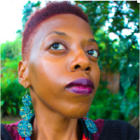
Photo by Shubham Dhage on Unsplash
I started my podcast in late 2022 from a place of frustration. At the time, I was constantly finding myself in conversations about digital phenomena where the main focus was often on depersonalised approaches that leveraged data in ways that couldn’t quite bring out the culture and context-informed narratives that data can’t always yield.
I would have started it much earlier were it not for my growing doubt about whether my version of digitality was relevant and real. Because while I instinctively knew that the conversations I have since started to have in my podcast were indeed important and worth sharing, I had faced one too many blocks to general understandings of my own specific digital standpoint. The conversations on the podcast thus far have broached themes around discussing sex and sexuality and mental health online, for instance. I have also brought in various influencers in the African digital space to think through what informed our entry into the digital space and what it means to be digital from an African standpoint.
My procrastination took me back to over a decade ago when a colleague had put my name down for a private digital workshop which would have been very helpful for me to attend in my then line of work running a women’s web platform, Her Zimbabwe. Alongside that work, I was immersed in research on Zimbabwean women’s digital cultures and digital storytelling. I had already been a prolific blogger for many years by that time and had made various observations about how and why young Zimbabweans of that era took to the digital space to express themselves digitally.
For me, it was always important to look at where women congregated on the internet and what they talked about there; how the level of their intimacy and sharing differed drastically when they were, – for instance, in a private Facebook group versus when they were in the public spaces of Twitter. However, despite this extensive knowledge of digital tools, devices and spaces, the convenor still decided that I wasn’t ‘the right type of digital practitioner’ for the space, and went on to select participants with far less experience and know-how. I think what was more frustrating than the omission was that this same colleague who did attend the workshop would later tell me that none of the participants who had attended had shown much interest or even followed through with the ideas shared during the workshop. But they came from the right sort of organisational backgrounds – in activism, policy and rights – to tick off the right boxes in the convenor’s mind of who should be there and how this would make the workshop representative.
But why exactly do I remember that moment so well? It is, as I have noted, a memory from over a decade ago; seemingly glancing as these sort of selection omissions are nothing really new.
I remember it because I know that that was the point when I began to perceive that there was something deemed inferior about social approaches and methods to digital studies. And I have continued to see this perpetuated in many spaces since then. Across a lot of them, I note a resistance to – or at least a looking down upon – the study of digital cultures.
Digital sociology, or the study of digital cultures, is crucial to full explorations of digitality. But I find – within what would be called ‘purist’ digital spaces, that it is always shunted to the corner with favour and leverage being given to conversations around data, datafication, algorithms and their manifestations within conversations around policy and rights. You will see this bias in many academic, activist and corporate digital spaces.
Quite serendipitously, I happened upon this excerpt from a post by Dan Dixon as I worked on this essay;
“from the standpoint of Silicon Valley, everything boils down to data, human experiences being no exception. And so just as John Nash in the 1950s [a reference to an earlier discussion in the post about the movie ‘A Beautiful Mind’] sought to “abstract an algorithm” to capture the movement of the pigeons, tech companies today seek to “abstract an algorithm” to mimic and predict our movements in all kinds of ways. This may bring benefits in the form of new technologies that expand the frontier of what’s possible. But one of the side-effects is that, in our tech-mediated culture, we, too, are encouraged to see the world in an ever more “algorithmic” way, our lives reduced to a series of problems to be solved via ever more apps, more gadgets and more data.”
And I do understand, fundamentally, where this bias comes from. The world of work and practice generally leverage the hard sciences; big data and generative quantitative data sets allow researchers, activists, practitioners and policy influencers to make bigger assumptions about phenomena. They tend to be easier to translate into different forms of modelling, to use to make large scale comparisons and to pinpoint specific demographic information. And so qualitative arguments, by virtue of their often much smaller data sets and samples and their qualitative approaches to analysis (often deemed to lend themselves to greater researcher biases), tend to be greatly undermined, and even overlooked.
A simple example is running a hashtag through a data analysis process. It could quickly offer us interpretations about when the hashtag was used most, what key words recurred over time, which actors used it most (perhaps even gleaning a sense of who these users are by specific demographic information), and how they connected to other users to create networks of virality. A digital sociologist might make use of some of this quantitative information to corroborate their own arguments; but the heart of what they are interested in looking at is generally rooted in the how and why. How did that hashtag become viral, and why? What was happening digitally and non-digitally at that point in time that made it a fertile moment for this virality to occur? And what does that teach us about human interaction and engagement?
Some years ago, I had the privilege to set up and teach an undergraduate level course on digital and social media. I was very mindful to bring in conversations about digitality from both a quantitative and qualitative experience, because I think it’s important for every curriculum and research of the internet to expose learners to different ways of seeing, and looking at, the internet. I wonder, how many activists and practitioners of the internet are also tortured digital sociologists who have just never been exposed to looking at the internet from this lens?
It’s going to be a year now since I began my podcast. And after many years of choosing a very uncomfortable self-silencing, what I have (re)learnt from branching out again on my journey of exploring digital cultures is, as Audre Lorde put it, that “it is better to speak, remembering we were never meant to survive.” I have also learnt that there are many other people grappling with similar issues around internet studies, practice and activism, and that there are people curious to explore the social dimensions of why and how we become digital.
I was recently at the Internet Governance Forum (IGF) held in Kyoto, Japan, where I proposed a panel under the auspices of my podcast and its general focus on digital cultures. My panellists, Tigist Shewarega and Juliet Nanfuka, and I worked to populate ideas for this panel, tapping into this dearth of conversations around social media futures, and from an African standpoint. I think it’s a big win that a space like the IGF, which I generally associate with more of a ‘hard’ policy and rights approach, accepted this proposal which turned into a deeply insightful conversation which you can listen to here.
I also think it’s a big win to be able to name one’s displacement and turn it into a door, an entry point, into a conversation that you can often feel shut out of.
This, I know, is more than a dilemma around studying the internet. I know it very much translates into how some among us never quite feel at home in any space because of what I now call our feral knowledge systems which, wild and untamed, never look like what spaces and systems require.
But we were never meant to survive.
So we might as well create, speak, think, act our versions of knowledge.
- 89 views







Add new comment